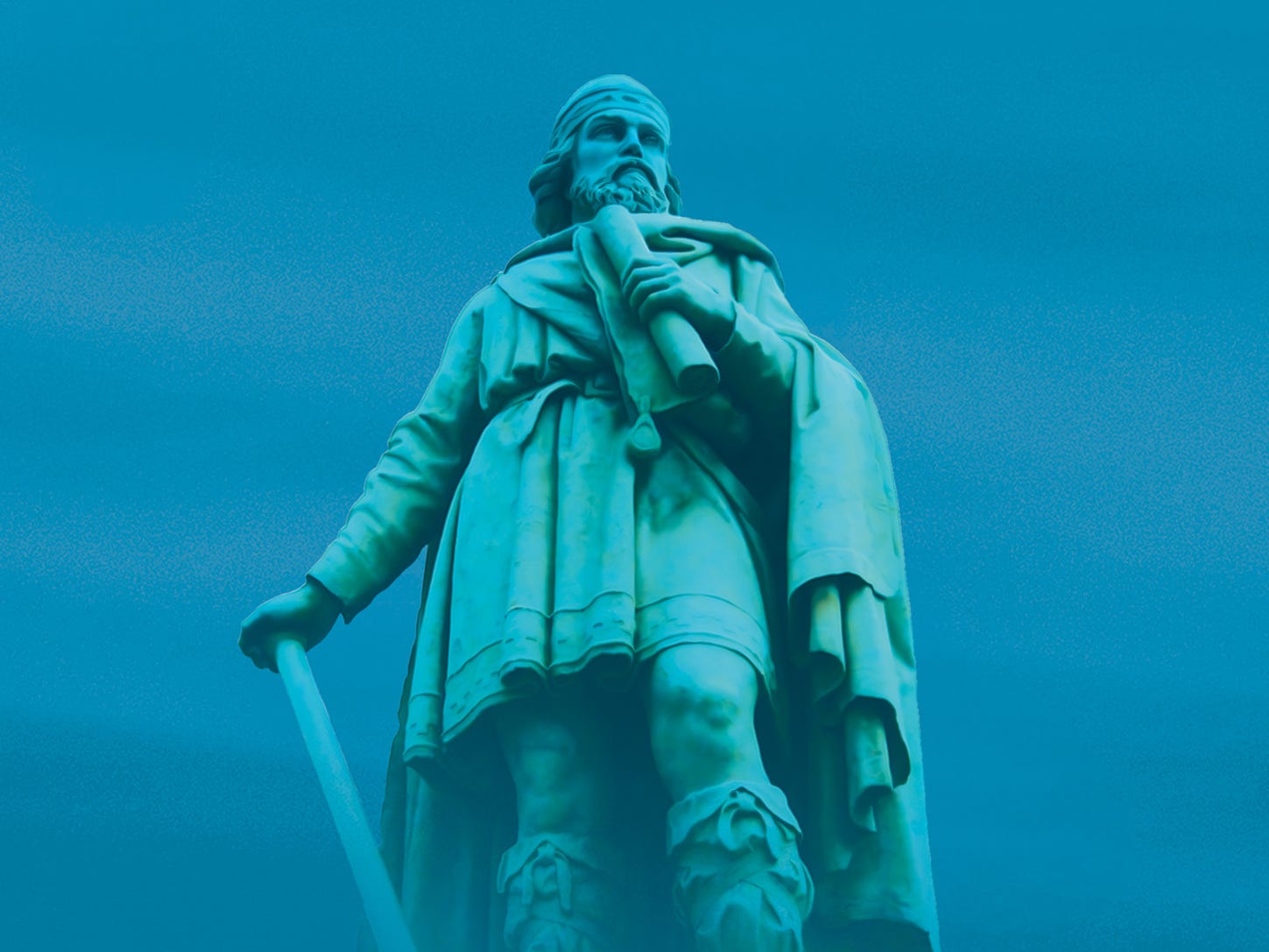Out Now: ‘Christian Nationalism vs Global Jesus’
NEW FROM ARKTOS
Andrew Fraser — Christian Nationalism vs Global Jesus: Projects of Peoplehood from Biblical Israel to the Collapse of British Patriotism
Christian Nationalism vs Global Jesus sheds much-needed light on contemporary controversies surrounding the seemingly oxymoronic phenomenon of “Christian nationalism,” past, present, and future, as problem and as solution.
Part One explores the ostensibly biblical foundations of Christian nationalism, the first-century Jesus movement, and the early Christian church in Greco-Roman antiquity. Part Two examines the extent to which the rise and fall of early medieval Anglo-Saxon Christendom was influenced by the “project of peoplehood” reflected in the Hebrew Bible. In Part Three, the focus shifts to a modern history culminating in the post-Christian collapse of British patriotism.
Does the contemporary crisis of Anglo-Protestant political theology stem from a failure to recognize in the historical Jesus the mythic model for the miraculous appearance of a Patriot King? The religious, political, and civil institutions of the Anglosphere now oversee the deliberate degeneration of historic Anglo cultures into mere economic zones, populated by rootless, shifting masses of morally debased monads. Could a Patriot King spark the reformation of the existing order of things?





Christianity is not racially 'patriotic', which is the only 'patriotic' that counts. If you polled 100,000 White 'christians' about the importance of White racial solidarity, you wouldn't even find one that supported it 'because Jesus wasn't a racist'.
'Christianity' will not save 'the nations' because it is designed to give the jews rule over them.
Whatever criticisms of 'the jews' that 'Jesus' might have had, they turned out to be irrelevant to the focus of 'christianity' on destroying White cultures while leaving jewish practices and 'culture' intact.
'Christianity' will slowly die and gradually Whites will realize they never needed it.
The debate between Christian Nationalism and Integralism is often framed as a battle between Protestant and Catholic political theologies, but from an Eastern Orthodox perspective, both approaches miss something fundamental: the deeper, organic relationship between Church and nation that historically existed in Orthodox civilization.
Unlike the rigid Catholic model of top-down ecclesiastical supremacy or the Protestant emphasis on the nation-state as an independent, theologically guided entity, Orthodoxy has traditionally fostered a symphonic relationship between Church and state (symphonia), where both worked in harmony without subsuming one another. The Byzantine Empire and, later, Orthodox kingdoms and tsardoms were not “theocracies” in the Western sense but instead sought a divine order where governance was both spiritual and political, rooted in the idea that the nation itself is an expression of the Church’s mission.
This is the crucial missing element in modern debates over Christian Nationalism. The Western right, whether Catholic or Protestant, often reduces the question to “Who wields power?” But Orthodoxy asks a deeper question: How is power sanctified? The Orthodox vision is not simply about reviving a Christian nation, but about restoring the ontological link between the spiritual and the political—between the Kingdom of God and the earthly kingdom.
The challenge today is that modern Christian Nationalism tends to be reactive rather than constructive. It correctly identifies the failures of secular liberalism and multiculturalism but often lacks a coherent vision of what it wants to build. Is it merely a return to Christianized civic nationalism? A reassertion of cultural Christianity? Or something deeper—an attempt to restore the cosmic vision of Christian civilization?
If Christian Nationalism is to have a future, it must move beyond just political strategy and rediscover what Orthodoxy has long understood: a nation is only truly Christian if it is liturgical, sacramental, and eschatological. Without that, any Christian state will inevitably become either a secularized bureaucratic machine with Christian aesthetics or an authoritarian structure enforcing morality without spiritual life.
The real battle is not just between competing political theologies—it is between a superficial Christendom and a truly Orthodox Christian order. And that is something Western political discourse is still struggling to grasp.